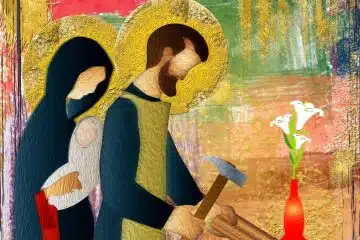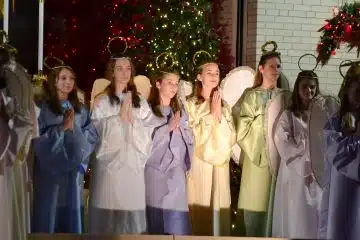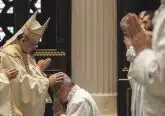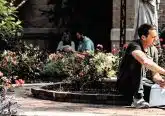Question of Faith: May a Catholic be “ordained” to officiate at a wedding outside the Catholic Church?
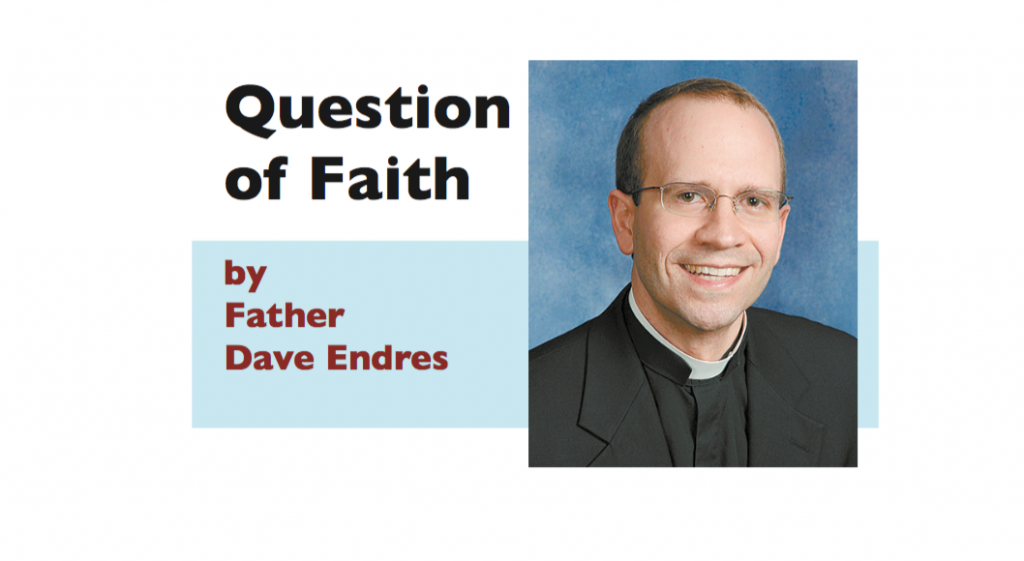
In the age of the internet, it is possible to be “ordained” a minister in a matter of minutes. The virtual churches that offer online ordinations do not require any education or training. They style themselves as “multi-denominational” or “nondenominational,” and do not ask for assent to a specific Creed or system of beliefs.
Most Catholics, given their understanding of ordained ministry, would not consider the possibility of “ordination” through an internet church, but increasingly ordination is sought out for a one-time occasion: to legally witness a wed-ding. As marriages increasingly take place outside of churches, it is not unusual for an engaged couple to ask a friend or family member to officiate at their wedding. In other cases, applying for virtual ordination might be done, in jest or on a whim.
A Catholic who seeks out online ordination might not be aware of the gravity of his or her choice. The Church holds to the sacredness of Holy Orders and the belief that God (not the individual) calls a person to specific roles of service, such as priesthood and the diaconate. It is the Church that discerns that call to ministry, as no one is seen to have a right to ordination. As the Catechism relates, “Anyone who thinks he recognizes the signs of God’s call to the ordained ministry must humbly submit his desire to the authority of the Church, who has the responsibility and right to call someone to receive orders” (1578). Accordingly, only bishops as successors to the apostles can validly ordain and should confer Holy Orders solely upon those men who have shown the qualities and virtues of an ordained minister and have been suitably prepared for his vocation (usually at least five years of discernment and formation).
Seeking ordination outside the Catholic Church denies the Church’s teaching on valid ordination and by extension rejects the Church’s teaching on the sacrament since they are closely connected and often directly rely on the priest or deacon’s ministry. Because of the significance of Holy Orders in the Catholic faith, a Catholic may not seek out ordination in another church (even solely to officiate at a wedding).
Since every Catholic is bound to the laws of the Church and required to maintain union with the Church “in its visible structure by the bonds of the profession of faith, the sacraments, and ecclesiastical governance” (Code of Canon Law, 205), receiving “ordination” in another church or faith community (however loose or unofficial the community) would necessarily involve entering into some degree of communion with another church or religious society – and to break communion with the Catholic Church. Though this is a serious matter, if a Catholic has sought out ordination or officiated at a wedding outside the Church without understanding the gravity, it is possible to be reconciled. One should approach the sacrament of reconciliation as soon as possible with a desire to return to communion in the Church.
Living in a society that increasingly does not value the importance of religious traditions, the increase of internet ordinations is not surprising. Virtual “ordination,” however, does not take the discernment and preparation necessary for ordained service seriously and may serve to imitate (or even mock) legitimately-conferred Holy Orders. Catholics are called to witness to the life-giving graces of the sacraments as instituted by Christ and conferred by the Church and should decline a request to be “ordained.”


